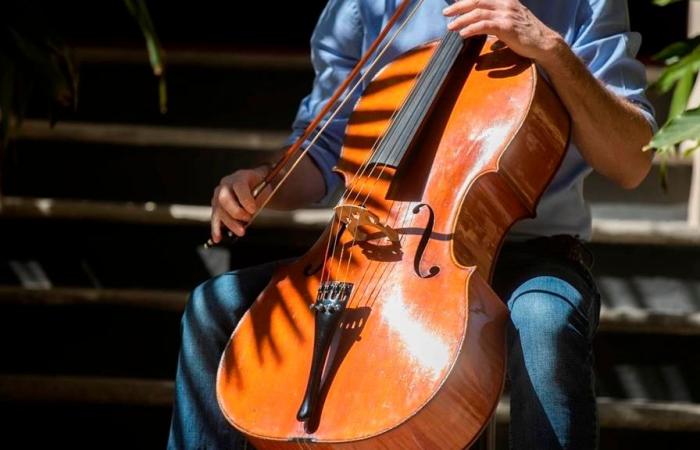The study published in the journal Frontiers in Psychology surveyed 2,438 Canadians aged 14 to 92, during the months of January to June 2022, in the midst of the COVID-19 pandemic, using an online questionnaire.
“Originally, we wanted to know what the effects of instrumental practice were, but our research team found it very important to be able to compare with the Canadian population in general, i.e. people who did not play music, and people who played music. other types of music, such as choirs, solo practices, etc.,” explains Audrey-Kristel Barbeau, professor in the music department at UQAM and co-researcher of the study.
The sample analyzed included 1,619 musicians, i.e. people practicing music at the time of the survey, classified as professional musicians, amateurs, high school students or people practicing music at a post-secondary level.
“Practicing music has an impact not only on mental health, but also on well-being and social support. This is clear when we compare with people who do not make music, therefore the general population,” summarizes Professor Barbeau.
The study found some nuances in these benefits within different types of musical practices, particularly between musicians who practice in groups and those who play solo.
“Solo musicians were particularly and negatively affected in terms of mental health during the pandemic compared to those who did not play solo music,” explains Ms. Barbeau.
However, surprisingly, the study found that soloists had better social support than people who played music in groups, such as in bands and orchestras.
“The hypothesis was that it is perhaps an effect of solidarity through solitude during the pandemic, the fact that there were balcony concerts, online performances,” indicates the professor.
Additionally, survey respondents were able to select more than one practice type, which may have had an effect on the study results, as several musicians reported playing music solo and in a group simultaneously. Their social support could therefore come in part from their group practice.
Differences between amateur and professional musicians
The frequency of musical practice also has a role to play in the extent of its benefits.
“The more we practice, the more it has an impact on well-being, mental health, social support,” says Ms. Barbeau. This can be explained by the pleasure that musical practice provides, but also by the fact that regular practice can lead a person to see more tangible musical improvements, which has a positive effect on motivation, specifies the professor.
SEE ALSO | Cirque du Soleil will offer a show about Daniel Bélanger in Trois-Rivières
Additionally, the study found that levels of well-being were higher among amateur musicians than among professional musicians and those making music at the post-secondary level. The study defines people with post-secondary musical practice as musicians who have studied music and who would continue to make music at a high level, without it being their main profession, indicates Ms. Barbeau.
The professor explains that the mental health of these last two types of people may have been more affected during the pandemic, in particular due to the financial precariousness linked to the cessation of concerts and the uncertainty regarding their employment. Professional musicians also face performance anxiety and the risk of injury while performing often, which may also explain this finding, she adds.
The results therefore suggest that “amateur musical practice done on a regular basis, and particularly in groups”, combined with sporting or social activities, have a particularly positive impact, according to the professor.
“It had an effect during the pandemic, and I am convinced that, if we did the survey again today, we could see that it is still indeed a benefit to participate in all of this,” maintains Ms. Barbeau.
Accessibility of music
The study also specifies that musical practice, when combined with the practice of a sport, participation in social clubs or volunteering, has positive effects on well-being.
“There is a good knowledge of the beneficial effects that we find through sport in society, and the beneficial effects of music, I would say that it is starting, but it is really not at the level of sport,” says Ms. Barbel.
The professor emphasizes that an elitist perception of the practice of music remains in society.
“It would be good if, more and more, music was seen as an accessible element that brings benefits to people’s health.”
As part of her doctoral studies, Ms. Barbeau also created an ensemble intended for people who had never played music and who decided to learn an instrument later in their life, in order to make the practice of a more accessible instrument.
The professor emphasizes that there are other inexpensive ways to practice music, such as using software that allows you to compose music, or by singing in a choir, singing also having benefits. Some libraries also offer instrument loans.
Finally, Ms. Barbeau clarified that the currently published study is initial research, while researchers will analyze other data to make more detailed comparisons between musicians and the general population, as well as a study looking at the variable of the kind.






